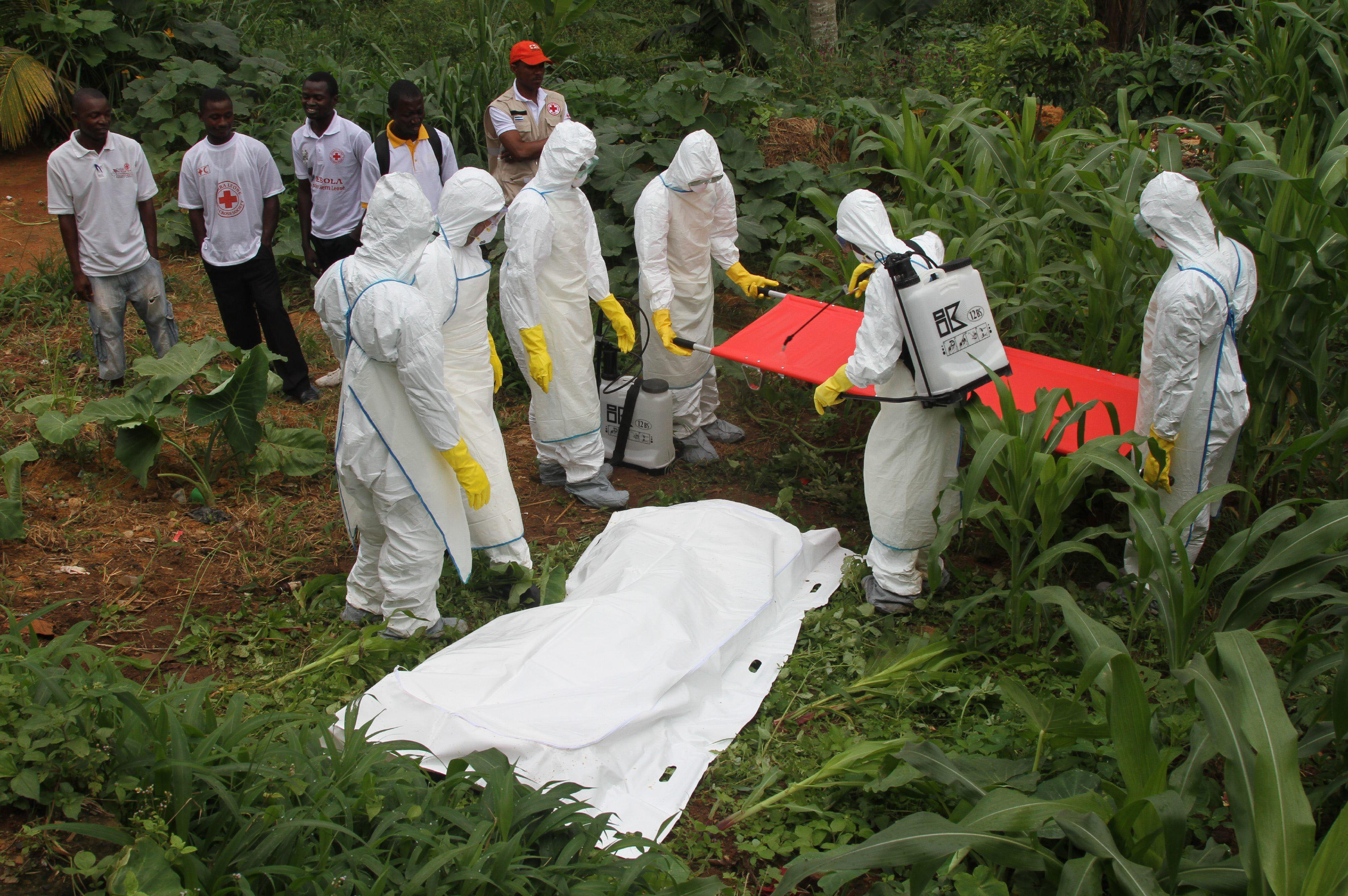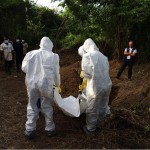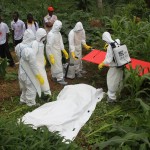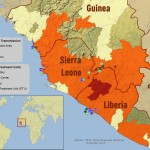A Kingston student caught one of only two remaining flights out of Ebola stricken Sierra Leone, leaving his mother and friends behind so he could continue his studies.
With West Africa virtually sealed off due a widespread outbreak of the fatal Ebola virus, geology student Ishmail Oscar Conteh managed to get out of Freetown, but said he was worried about the people he left behind.
“I fear for my mom and my friends back home,” Conteh said. “It is worrying to think that they are still there.”
The struggle to get back
The journey back was frustrating for Conteh, as the borders of Sierra Leone had been completely sealed off on ground level, and airlines had cancelled their flights, cutting off the only way to get in or out of the country.
British Airways, together with many other international airlines suspended all planned flights to and from Sierra Leone and Liberia in August.
“I booked a flight from Freetown to the UK in early September, but it got cancelled,” Conteh said. “It then became really hard to get out.”
“I eventually got on a flight to Senegal, and then another one to Morocco, before getting back to London”.
Not a carrier
In Morocco, Conteh had to undergo excessive screenings to make sure he was not carrying Ebola. He had to answer a questionnaire and do a scan that measured his temperature. Fever is one of the main symptoms of Ebola.
“There was a nurse who did a full body check, whilst a scanner determined if there was any irregularities in my temperature,” he said.
The same screening process will start up at major UK airports, such as Gatwick and Heathrow. Anyone who has travelled from Sierra Leone, Liberia, or Guinea will have to undergo a screening.
Conteh also had a blood test done prior to leaving Sierra Leone, as it is the only way to be certain you are not infected.
Extremely Deadly
Ebola is an haemorrhagic fever that spreads through bodily fluids. Victims suffer from internal and external bleeding, which eventually shuts down the body’s vital organs.
According to the World Health Organization (WHO), the mortality rate of Ebola is up to 90 per cent, depending on which strain of the virus it is.
Conteh compared Ebola to a vicious predator that has chosen its hunting grounds wisely.
“The disease, by nature, feasts on affection,” he said. “It spreads through basic human interactions, and we Sierra Leoneans are a very touchy-feely people. You always shake hands and hug whomever you speak with, whether a family member, a friend or a new acquaintance. It is rude not to.”
“This is normally something I consider a good trait, but in times like this it is very disturbing.”
Spreading fast
Numbers presented by Save the Children earlier this month estimated that the disease is spreading at the rate of five new cases an hour in Sierra Leone. This number is expected to double to 10 new cases an hour by the end of October.
Although no one from Conteh’s immediate family or circle of friends have contracted Ebola, he does know a few people who have been personally affected.
His girlfriend’s university friend got quarantined after a doctor living next door to him recognised the symptoms.
“The doctor called the authorities and they came and took him away,” Conteh said. “Then they quarantined the entire apartment building he was living in.”
Another acquaintance of Conteh, who lived just down the road from him, have also contracted the vicious disease.
“He got confirmed Ebola and the last thing I heard was that he was vomiting blood,” he said. “I don’t know if he is still alive or not.”
Fear in Freetown
According to Conteh, buckets of chlorine have been stationed everywhere for people to wash their hands, and people are urged to have minimal physical contact with each other.
“Everybody is very conscious and concerned about their health,” Conteh said. “No one even dares to shake another person’s hand anymore. We now resort to giving each other a little nod or bump our elbows together as a greeting”.
Many local businesses like nightclubs, cinemas and shops have shut due to the threat of Ebola and the general mood in the streets is very cautious, according to Conteh.
“People are very scared. Everyone is aware of what is going on and are taking preventive measures to protect themselves.”
Educating the people
In an effort to halt the spreading of Ebola, the government of Sierra Leone placed the whole country under a three-day lock down, where no one was allowed to leave their house for 72 hours.
During this period, between September 19 and 22, public- health officials and volunteers, including Conteh, went door to door, educating people about the disease and tried to identify patients who should be brought to containment facilities.
“I went knocking on doors with other volunteers to educate the people in our community,” he said. “We talked about what is going on, prevention measures and signs and symptoms of the disease.”
“Educating the people is a key feature to stop the spreading,” Conteh said and applauded his president for enforcing the lock- down.
“He has done a great job in trying to tackle the issue. I have the greatest respect for him.”
International threat
According to the World Health Organisation (WHO), the 2014 outbreak of Ebola in West Africa is the most fatal ever recorded. It has already claimed over 4 000 victims across the three heaviest affected countries: Liberia, Guinea and Sierra Leone.
In the last days of September, the US diagnosed the first case of Ebola outside of West Africa. The patient, Thomas Eric Duncan, is believed to have contracted the virus whilst helping a pregnant Ebola victim to the hospital in Monrovia, Liberia.
Duncan, who was treated at Dallas Presbyterian Hospital, died from the disease on October 8.
It has now come to light that one of the nurses, who treated Duncan, tested positive for Ebola and is being treated at the same hospital.
In the UK David Cameron has ordered stress tests of the NHS in case of an outbreak.
England’s Chief Medical Officer, Dame Sally Davis, said that the UK should be prepared for “a handful” of Ebola cases in the next coming months, but assured the public that the NHS was equipped to handle it.
British efforts
An international summit on the crisis of Ebola, organised by the UK and Sierra Leonean governments, was held in London early this month. Participants from all over the world gathered to discuss the tragedy and measures of prevention.
David Cameron promised in his speech which opened the summit that the UK would do “all it could to support the fight against Ebola.”
More than 40 aid experts and personnel from the British military are currently working in Sierra Leone due to a request for assistance from the World Health Organisation (WHO) and the country’s government. Additionally, over 160 NHS staff is due to arrive in Sierra Leone following an outcry for volunteers to help fight the disease.
During the summit the UK government obliged to build facilities for 700 new hospital beds in Sierra Leone, but the first of these will not be ready for weeks and the rest will take months to finish.




